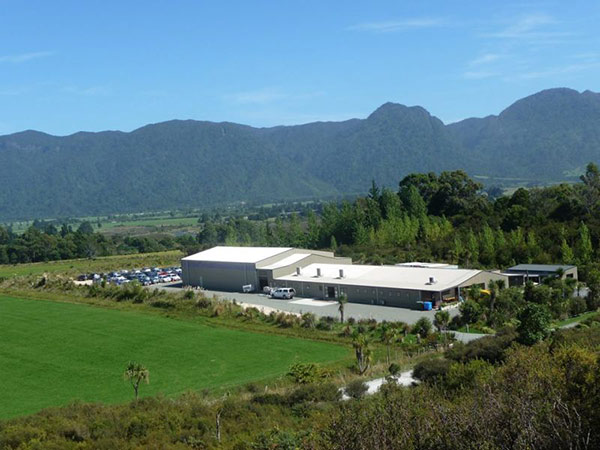Globalization helps NZ family biz tap China market
 0 Comment(s)
0 Comment(s) Print
Print E-mail China Daily, March 27, 2017
E-mail China Daily, March 27, 2017
 |
| The headquarters of Healthpost in Collingwood in Golden Bay on New Zealand's South Island.[Photo provided to chinadaily.com.cn] |
Healthpost is a typical Kiwi family business, with mom and/or dad starting up and running the business and kids lending a helping hand.
The company packs and delivers health products ordered via mails or phone calls to customers living in New Zealand.
This has been the situation since the company was established in 1988 in the small village of Collingwood, Golden Bay on New Zealand's South Island.
This is still part of the story, but not all.
Changes began when Abel Butler, son of HealthPost founder Linley Butler, decided to set up a website for all the products in their mail-order catalogue in 2002.
"Linley did not like the idea of e-commerce as she even hated emails," Abel Butler said.
Healthpost chairman Peter Butler said it took several months for them to persuade Linley, promising her that if this new business model worked, they could employ more people and she might not need to work as late as one o' clock in the morning to handle orders herself.
Just as Abel Butler had imagined, their natural health products appealed to customers all over the world, with orders coming in from India, Turkey, South Africa and the United States.
"We did not search for them, they searched for us," Abel Butler said.
"I guess that was because the need for natural products was growing worldwide and they searched online and they found us," he added.
Abel Butler, the web manager at first and now the CEO of Healthpost, attributed this progress to grasping the right opportunities at the right time.
"Back in 2002, there were few online retailers in the health products sector and we were the earliest and we are still the largest," he said.
"Our upstream manufacturers also grow as our markets expand and we need more," said the chairman.
"Without globalization, New Zealand could still be an isolated island country down under, but due to globalization, we could now make products manufactured in a geographically remote area accessible to almost everyone in the globe," said the CEO.
Peter Butler said as their customers are located almost everywhere, there was no data pointing to which sub-market might be more important than others.
In 2008, the Butlers thought Korean consumers might be more interested in their products and they put more efforts into the market.
" We could see no big difference in sales related to Korean consumers after all these efforts, " Peter Butler said.
Two years later they turned their attention to the Japanese market by building a Japanese sub-site and hiring two Japanese employees.
But likewise, their efforts did not result in a significant difference in sales.
However, in 2014, Abel Butler recalled that they had noticed there was a significant increase in Chinese-related orders.
"The Chinese prefer to order a variety of products once while consumers in other countries might order one piece each time," Peter Butler said.
" You know we, of course, like these type of consumers and by the way, parcels to China seldom go missing, which might happen quite often in other developing countries such as in India," he added.
Although, the family attributes the increase to the common ground between traditional Chinese medicine, which is sourced from herbs and their belief in products made from natural ingredients and not tested on animals, they are still not exactly sure why the Chinese like their products.
"I guess the surge in inbound tourists and students from China might have helped them get to know us and brought in orders," Abel Butler said.






Go to Forum >>0 Comment(s)